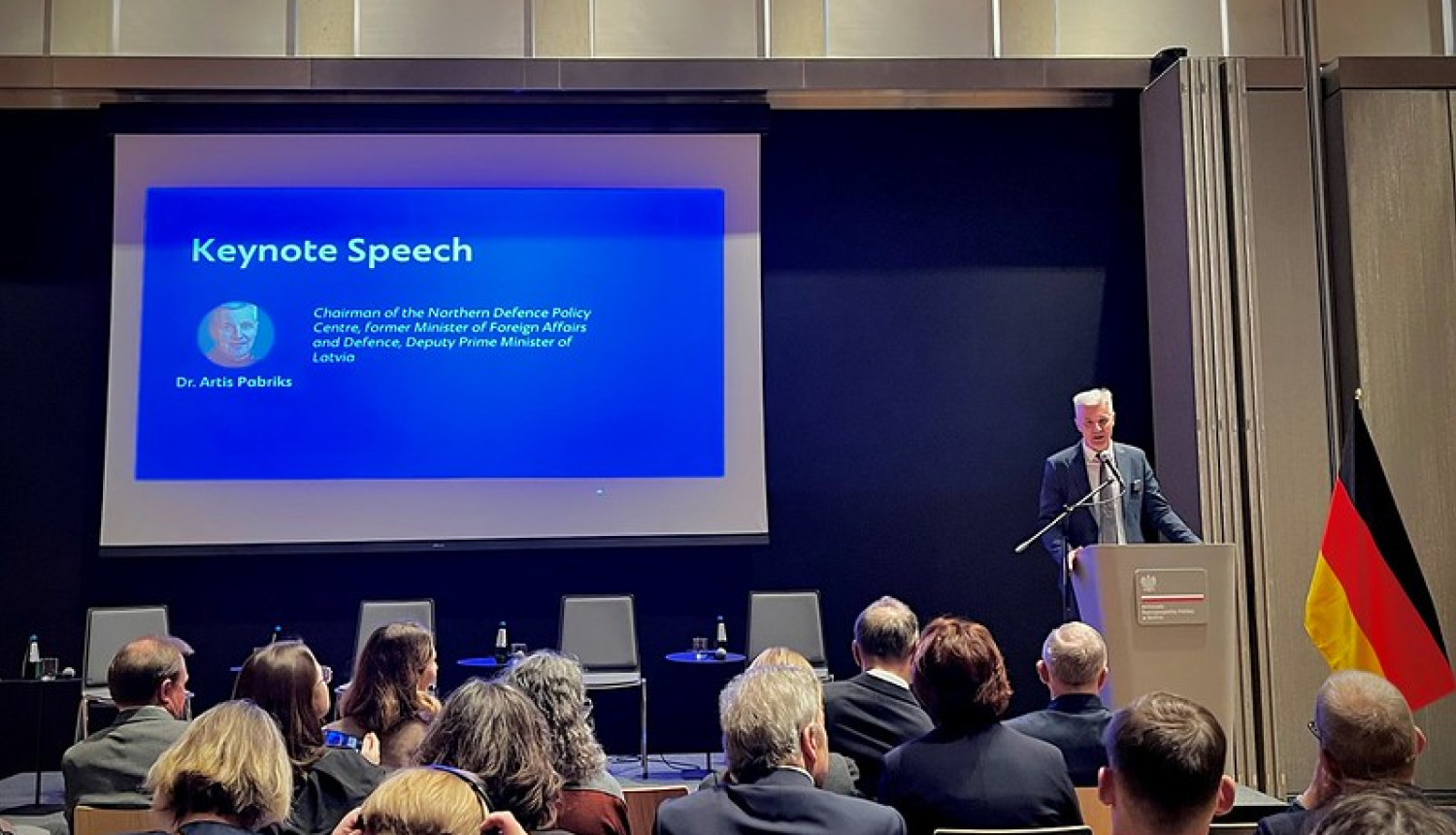On 6 and 7 November 2025, the Latvian Embassy in Berlin co-held an international symposium, “Echoes of the Empire: Soviet Monuments and the Machinery of Disinformation”, to discuss the legacy of Soviet monuments and their impact on the collective memory and political discourse in Europe. The event was also the official opening event for the Berlin Freedom Week.
Over two days, internationally renowned historians, legal experts, artists, curators and policymakers from Germany and other countries examined the legal, political and ethical frameworks that govern the preservation, interpretation or dismantling of such monuments. The experts analysed how these monuments function as potential tools of disinformation in the contemporary geopolitical context, and they provided insights into the approaches of different countries to managing the legacy of totalitarianism. Participants also shared their experiences and strategies for addressing the issues of historical memory related to Soviet symbols.
Artis Pabriks shared Latvia’s experience with those present, while emphasizing:
“Soviet monuments are not just historical relics like many other monuments. They are a living embodiment of a growing threat to everything we hold dear. Russian strategic communication intensively uses them to rally society in the Russian state against its neighbours while at the same time seeking to cause a rift among Western democratic societies, creating doubt and distrust in our own values and actions.”
The insights of the symposium participants confirmed the importance of building an international dialogue on the importance of historical memory and the impact of disinformation mechanisms on society. It is also essential, using a science-based approach, to deconstruct one-sided historical narratives and strengthen the understanding of democratic values in Europe.
The symposium was organized by the Ukrainian Institute, in association with the Embassies of Latvia, Poland, Lithuania and Estonia, as well as the Lithuanian Cultural Institute and the Polish Institute. The event was supported by several German institutions: the German Federal Foreign Office, the German War War Graves Commission (Volksbund Deutsche Kriegsgräberfürsorge e.V.), the Federal Foundation for the Evaluation of the Dictatorship of the Socialist Unity Party of Germany (die Bundesstiftung zur Aufarbeitung der SED-Diktatur), the Berlin Karlshorst Museum (Museum Berlin-Karlhorst) and the German-Ukrainian Historical Commission (Deutsch-Ukrainische Historische Kommission).
The event was implemented as part of the public diplomacy programme in support of the priorities of Latvia’s membership of the United Nations Security Council and promoting Latvia’s visibility. On 3 July 2025 Latvia was elected to the UN Security Council for the term from 1 January 2026 to 31 December 2027. Membership of the UN Security Council will be a key instrument in pursuit and protection of Latvia’s foreign policy interests. The overarching goal of the membership is to safeguard and strengthen the international environment conducive to Latvia’s security, exploiting and at the same time enhancing the opportunities offered by multilateral diplomacy.




